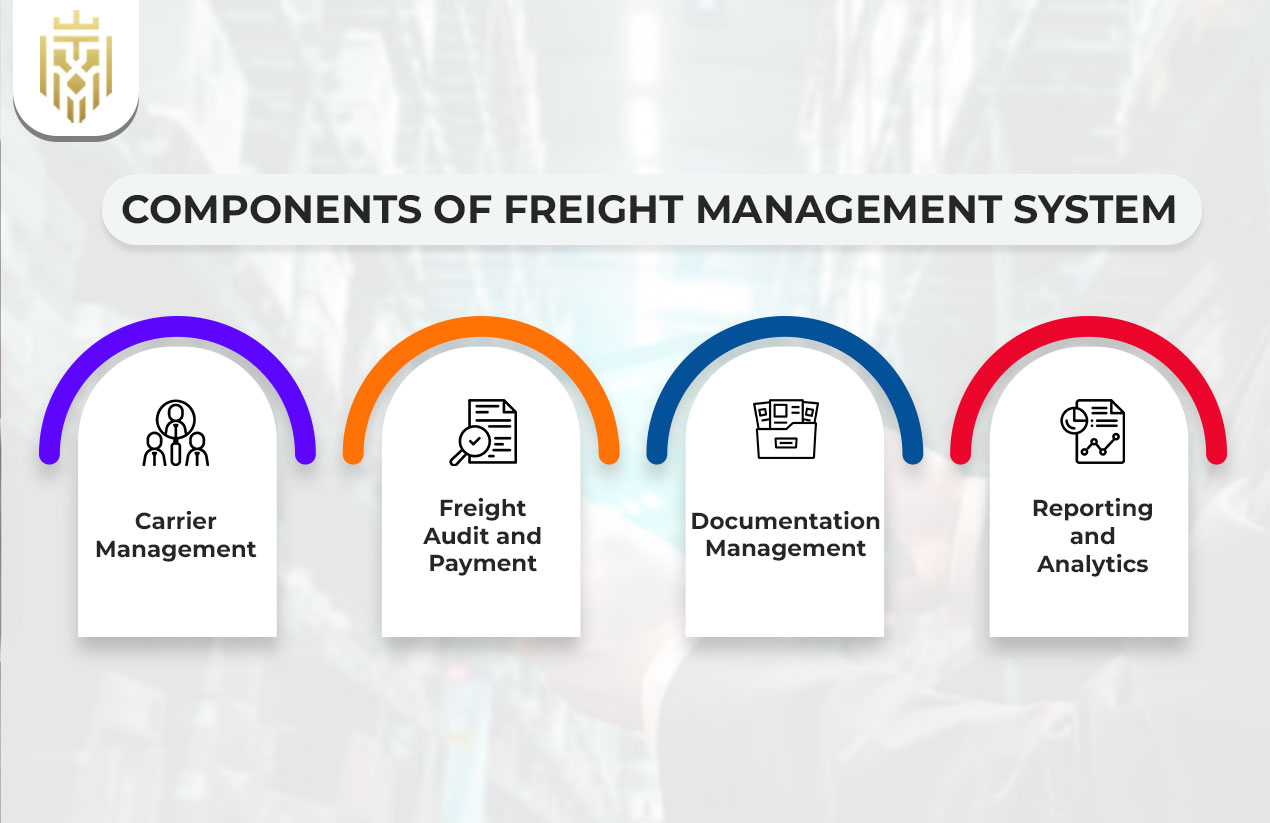What is Freight Management?
Freight management is the process of planning, organizing and monitoring the transportation of goods to achieve efficiency and cost-effectiveness. A good freight management system picks carriers, tracks shipments, and handles paperwork. Numerous companies provide solutions to streamline operations and provide timely delivery without the risk in the supply chain risk management process.
Why is Freight Management Important?
Freight management is important to meet delivery timing, minimize costs and improve customer satisfaction. An advanced freight management system is used by businesses to optimize routes, coordinate inventory with transportation and ensure compliance with regulations. In addition, logistics challenges are converted into opportunities by effective management, thus making supply chain risk management a competitive advantage.
Components of Freight Management System:
Carrier management, freight audit and payment, documentation management, and reporting and analytics are components in a freight management system. These components reduce costs, guarantee compliance, facilitate better decision making and improve supply chain risk management to increase in total logistics efficiency for businesses.

Carrier Management:
A freight management system assists shippers in choosing the right carriers, monitoring performance, and getting the right rate quotes. This also increases the accuracy of billing and increases the utilization of equipment for operational efficiency. These solutions are easily integrated, and provide improved oversight and accountability in supply chain risk management.
Freight Audit and Payment:
Freight management systems include freight audit and payment (FAP) to guarantee that charges are correct, prevent duplicate payments and resolve disputes. FAP analyses trends and generates reports to help them be more cost efficient and help with decision making. It also helps in making supply chain risk management robust by protecting financial and operational interests.
Documentation Management:
Digital freight management systems store secure bills of lading, customs forms and export licenses into their own system. It ensures compliance, improves communication between stakeholders and improves operational efficiency. Well handled document management in time reduces supply chain risk management risks and helps businesses stay agile and competitive.
Reporting and Analytics:
Data driven insights in freight management with reporting and analytics can improve operational efficiency. They cost out, carrier performance and route optimization, and find inefficiencies. Businesses use a freight management system to make decisions better, cut costs and enhance supply chain risk management.

Modes of Transportation for Freight Management:
The modes are: air for speed, road for flexibility, rail for cost efficiency and water for global trade. Each mode is integrated into a freight management system for efficiency, reliability and strong supply chain risk management.
Air:
Air transportation is the fastest mode in freight management, using higher costs than other modes, but it is a good choice for time sensitive shipments. However, air freight is integrated into a freight management system to increase reliability and provide real time tracking. Its speed is good for critical deliveries, allowing large corporations and agile businesses to thrive.
Road:
Road transportation is a suitable mode of freight management for both local, cross border and long distance deliveries. It is economical, enables door to door service, and fits nicely into a freight management system that includes tracking technology. This mode provides supply chain risk management transparency and adaptability.
Rail:
Within freight management, rail transport is a cost effective and environmentally friendly mode. Although less flexible in schedules, bulk, long distance shipments are ideal and works well in conjunction with other transport modes. Supply chain risk management is supported by its low risk profile, especially in large scale operations.
Water:
Water transportation is the mainstay of global trade as it can manage bulk shipments, and hence is a major player in freight management. Maritime logistics is efficiently managed by a robust freight management system on oceans, rivers and channels. This mode is essential for international trade and for it to work well as a mechanism in supply chain risk management.
FAQs
-
What is meant by Freight Management?
Freight management is the process of planning, organizing and monitoring the transportation of goods to achieve efficiency and cost-effectiveness. A good freight management system picks carriers, tracks shipments, and handles paperwork.
-
Why is Freight Management Important?
Freight management is important to meet delivery timing, minimize costs and improve customer satisfaction. An advanced freight management system is used by businesses to optimize routes, coordinate inventory with transportation and ensure compliance with regulations.
-
What are the Four Modes of Freight?
The modes are: air for speed, road for flexibility, rail for cost efficiency and water for global trade. Each mode is integrated into a freight management system for efficiency, reliability and strong supply chain risk management.
-
What are the components of Freight Management?
Carrier management, freight audit and payment, documentation management, and reporting and analytics are components in a freight management system. These components reduce costs, guarantee compliance, facilitate better decision making and improve supply chain risk management to increase in total logistics efficiency for businesses.







